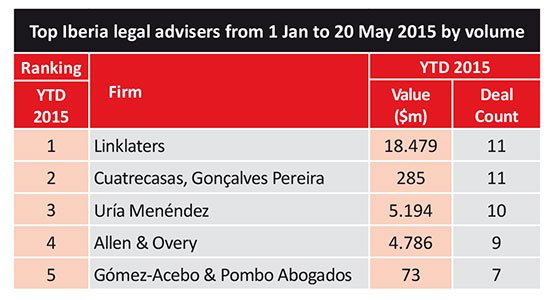Choosing firms in new jurisdictions is tricky
A major challenge for companies entering new markets is making the right decision about which external legal advisers to use, says Efacec´s Joana Martins Mendes
When companies venture into new markets that they are not completely familiar with, it can present significant challenges for their in-house lawyers. Indeed, one of the biggest challenges facing Portuguese electrical engineering company Efacec is finding legal counsel in markets where the organisation does not have any links to law firms. As Efacec´s general counsel and company secretary Joana Martins Mendes explains, in these circumstances it is necessary to conduct some legal market research. “If we have a matter in a market such as, let’s say Guatemala, then finding counsel requires a strategic approach,” she says. “We often end up researching the market, checking the rankings in the legal directories and then approaching a selection of law firms directly.”
According to Mendes, Efacec tends to use external law firms for transactional matters or work where specialisation is required in areas such as labour and employment, litigation and tax. The company also turns to external firms when in-house resources are limited. Mendes adds: “We will hire a law firm when we are engaged in a particularly large project – this will often involve the need for a larger amount of lawyers than we have in our in-house team so we have to call on more legal resources for help.”
Mendes says Efacec generally uses two law firms in Portugal, but adds that there are a handful of others that will be called upon in the event that specialist services required. She stresses that, for her organisation, one of the most important things for an external law firm is to approach the mandate “like a partnership”. She says: “Relationships and partnerships are a central concept for our external firms. In fact, this can also be more about personal relationships with individual lawyers – which have been built up over years of collaboration – rather than the law firm as a whole.”
Big surprises
What does Efacec want from the law firms that will, in effect, operate as its partners? In terms of the specific qualities she looks for in external advisers, Mendes highlights flexibility, business accreditation and timely service as among the most important. Fees are also a consideration, especially in certain jurisdictions where she has had “big surprises” with regard to the “unexpectedly high” hourly rates charged by local counsel. She adds: “Portuguese law firms are increasing more accommodating and happy to accept fixed fees or capped fees for work.”
With more than 3,900 employees across more than 65 countries in five continents, overseeing the legal function at Efacec Group can be a complicated job, according to Mendes. She has the task of managing the legal aspects of Efacec’s work across its three core business units – energy; engineering environment and services; and transports and handling – as well as its seven regional networks: Latin America, Southern Africa, USA, Central Europe, Iberia, India and Maghreb. These networks include countries stretching from Argentina to Austria and from Angola to India.
Despite this large remit, Mendes – who has been at the company since 2001 after previously working in-house at Sonaecom – says that Efacec’s seven-lawyer in-house team still handles the vast majority of its legal matters in-house. “We generally prefer to keep the core commercial issues within our team, especially for things such as contracts and negotiations,” she adds.
Maintaining control
Mendes believes it is important to retain control of commercial matters because it means the team can work very closely with the various business units of Efacec. This enables the legal team develop a knowledge and understanding of the requirements of the wider business as well as play an integral role in the development of the business. She points out that – in terms of the legal team´s day to day activities – the bulk of its work also involves the company´s suppliers. In this respect, the team will have to work on proposed contracts that have been offered to Efacec.
When looking at such contracts, it is important that lawyers take a business-minded approach, Mendes says. “While we don’t generally draft the contracts, one of our key responsibilities is the renegotiation of these contracts as well as the redrafting of clauses,” she says. “This combines legal work with commercial know-how, which allows our team to assist in moving the company forwards and gives a genuine business angle to our work.” IL
Joana Martins Mendes is general counsel and company Secretary at Efacec











